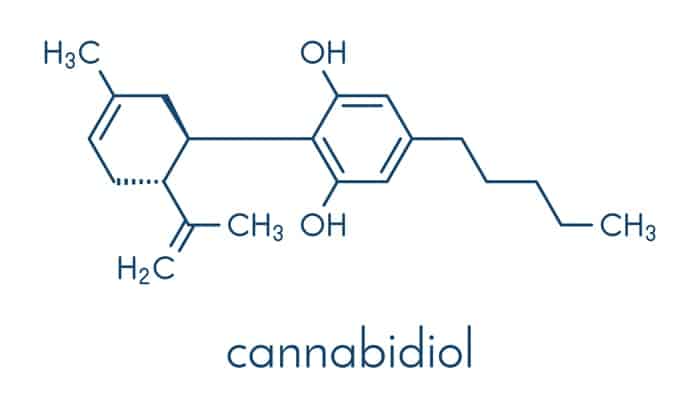CBD, Hemp Science
What is the Difference between Hemp Oil and CBD Oil?
Hemp oil and CBD oil have many similarities, yet these common phrases do not have identical meanings. This article will briefly explore the hemp extraction process, how hemp product manufacturers are able to isolate specific cannabinoids, and how consumers can know which types of extracts will be the best for them.
What are cannabinoids?
Cannabinoids are naturally occurring chemical compounds with the ability to directly interact with the human body. The most commonly recognized cannabinoid is THC (tetrahydrocannabinol), which can be distinguished by its unique psychoactive effects. Another commonly recognized cannabinoid is CBD, which is often preferred for its wellness benefits that can address a variety of different conditions. Additionally, there are over 100 other different cannabinoids including CBC, CBN, CBG, and many others.
What is a hemp extract?
Marijuana is a product that can only legally be sold in a limited amount of states. Hemp, though it is still subject to certain regulations, is much more widely available. By now, you have probably seen advertisements for things such as hemp soaps, hemp backpacks, hemp lotions, and numerous other hemp products that are intended for uses other than consumption.
A hemp extract, just as the name might imply, is a product that is derived directly from hemp. Because it is hemp, which is characteristically different than marijuana, hemp extracts distinctively lack high levels of THC. A hemp extract is a product that may or may not possess CBD and other cannabinoids, but this is not always the case. However, when hemp is extracted with the intention of maintaining high CBD levels, there are multiple different forms that it may come in.
What are the different kinds of hemp extraction?
Currently, there are several different kinds of hemp extractions used throughout the industry. Hemp that is grown for industrial purposes—such as fibers, paper, cloth, soaps, and others—does not need to concern itself with maintaining a significant level of cannabinoids. Hemp that is grown for consumption purposes, however, can be extracted in ways that may include some cannabinoids while excluding others. This is done through a process known as fractional distillation.
Fractional distillation is a process that boils liquefied hemp for the purpose of separating its different components. Then, once these components (cannabinoids) are fully separated, they can be mixed back together in a way that results in a perfect balance of ingredients.
- Full Spectrum Hemp Extracts will include multiple different cannabinoids in order to benefit from what is known as the entourage effect. CBD, CBC, CBN, and other cannabinoids can work together in a way that is ideal for consumers.
- THC Free Hemp Extracts take an extra step to assure that absolutely all THC is removed from the hemp. Though this can certainly be quite appealing to some people, this process is the most expensive.
- CBD Isolate Extracts focus on maximizing CBD levels while minimizing the levels of other cannabinoids.
Do hemp extracts always contain high levels of CBD?
Though hemp extracts might contain a high level of CBD, by definition, this does not always necessarily need to be the case. There are many different kinds of hemp extracts available that are characteristically lacking of high CBD levels and may be used for other purposes. However, despite this variation in available hemp products, there is still no doubt that CBD is the cannabinoid that hemp farmers have recently become the most interested in. As time goes on, the variation of hemp extracts available will continue to expand.
What is the difference between a hemp extract and CBD oil?
The main difference between a hemp extract and CBD oil is fundamentally the same as the difference between a rectangle and a square. CBD oil—which can be used to fulfill various wellness purposes—is extracted directly from hemp and therefore, can be considered a hemp extract.
However, there are variations of hemp extracts that are distinctively different than CBD oil. For example, the type of hemp extract that is often most positively recognized by industry experts is a full spectrum distillate. Though maintaining high levels of CBD may be a priority during the distillation process, full spectrum distillates focus on including other important cannabinoids as well. Using this process gives producers the ability to create the exact kind of extracts they believe will be best for consumers and also gives consumers a much wider range of wellness options to choose from.
How do I know which hemp extract will be best for me?
There are many different things that will affect which specific hemp extract will ultimately be best for you. If you are willing to spend more money to completely remove all THC, then a 100% THC extract may be in your best interest. If you care most about CBD, but are less interested in the presence of other cannabinoids, then CBD oil may be a better option. And if you’re planning to create your own hemp retail line, you can distinguish your brand with BFF’s unique formulations of white label CBD oil. Full spectrum distillates offer the benefit of the entourage effect and are often recommended by industry experts. Regardless of what your preference may be, it is important to understand these differences before making any final purchases.




